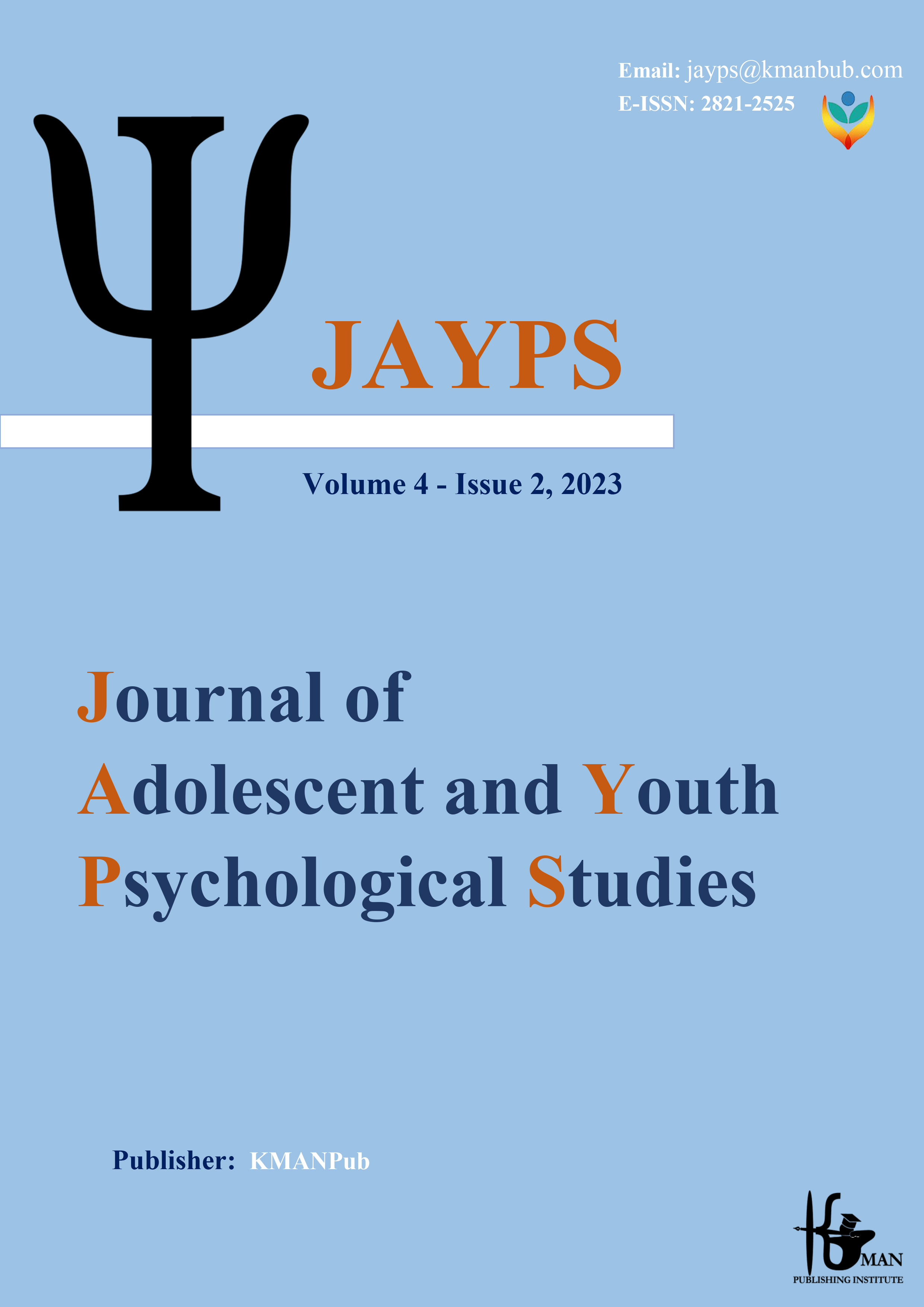The effectiveness of cognitive behavioral therapy on experiential avoidance and emotional expression of women involved in emotional divorce
Keywords:
cognitive behavioral therapy, experiential avoidance, emotional expression, emotional divorce.Abstract
Background and Aim: Divorce is one of the most important family traumas that can have vulnerable effects on the individual and the society. The purpose of this study was to determine the effectiveness of cognitive behavioral therapy on experiential avoidance and emotional expression of women involved in emotional divorce. Methods: The current research method was conducted as a semi-experimental study with a pre-test and post-test design along with a control group with a follow-up period. The statistical population included all the women eligible for emotional divorce in Tehran who referred to the Atiyeh Psychology Clinic in 2022, from which 30 people were selected as available and randomly selected and in the experimental group (15 people) and witnesses (15 people) were replaced. The data were collected using Barati and Sanai's Marital Conflicts Questionnaire (1999), Gutman's Emotional Divorce Questionnaire (2008), Bund et al.'s Experiential Avoidance Questionnaire (2007) and King and Emmons' Emotional Expression Questionnaire (1990) in the early stages. The test, post-test and follow-up have been obtained. Cognitive-behavioral therapy protocol was performed in 8 sessions (one session per week) for 90 minutes. To analyze the results, repeated measurement variance analysis method and SPSS.22 software were used. Results: The results indicated that cognitive-behavioral therapy was effective in reducing experiential avoidance and emotional expression of women involved in emotional divorce, and this effect was permanent until the follow-up period. Conclusion: It can be concluded that cognitive behavioral therapy is effective on experiential avoidance and emotional expression of women involved in emotional divorce and this treatment can be used to reduce the problems of women involved in emotional divorce.
Downloads
Downloads
Published
Issue
Section
License

This work is licensed under a Creative Commons Attribution-NonCommercial 4.0 International License.









